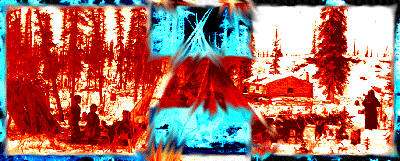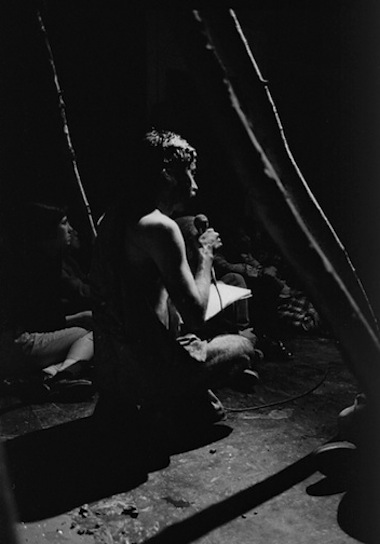
Once with names like
Ancient Wind…
Now, little fisted flowers falter
on good days when hard rains come washing
strangers walking darkly
to your door.
Ancient Wind…
Now, little fisted flowers falter
on good days when hard rains come washing
strangers walking darkly
to your door.
And on bad days
as children step aside
for sun glinting bright
off a rusting
punctured
can,
I close my mind
to the older man brown and weathered,
with hair untied or to
the younger woman with
dead doll eyes… And outside
wind pushes echoes of
a dying
land earth song.


Please leave your comments here...kinanâskomitin (thanks!)